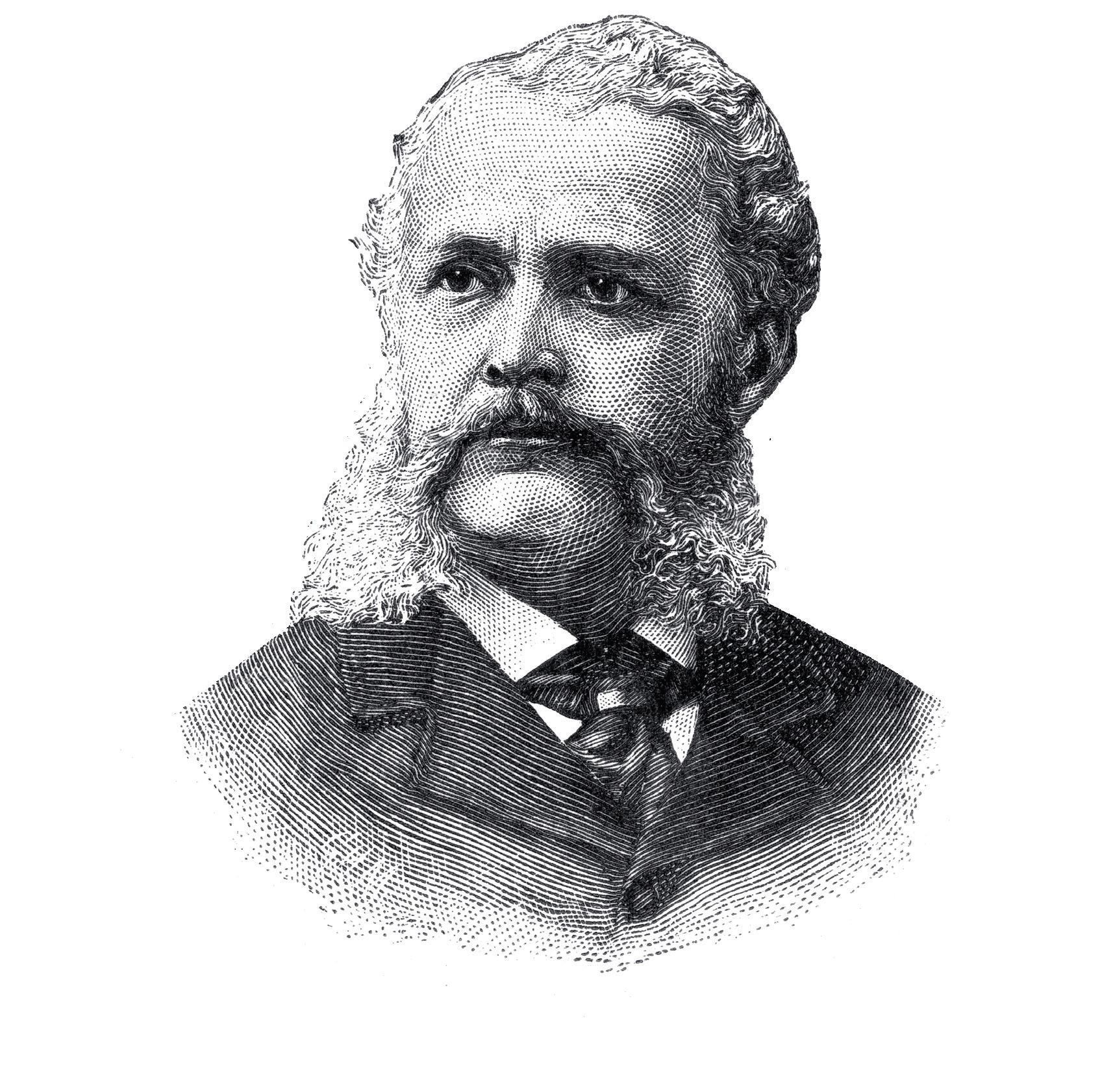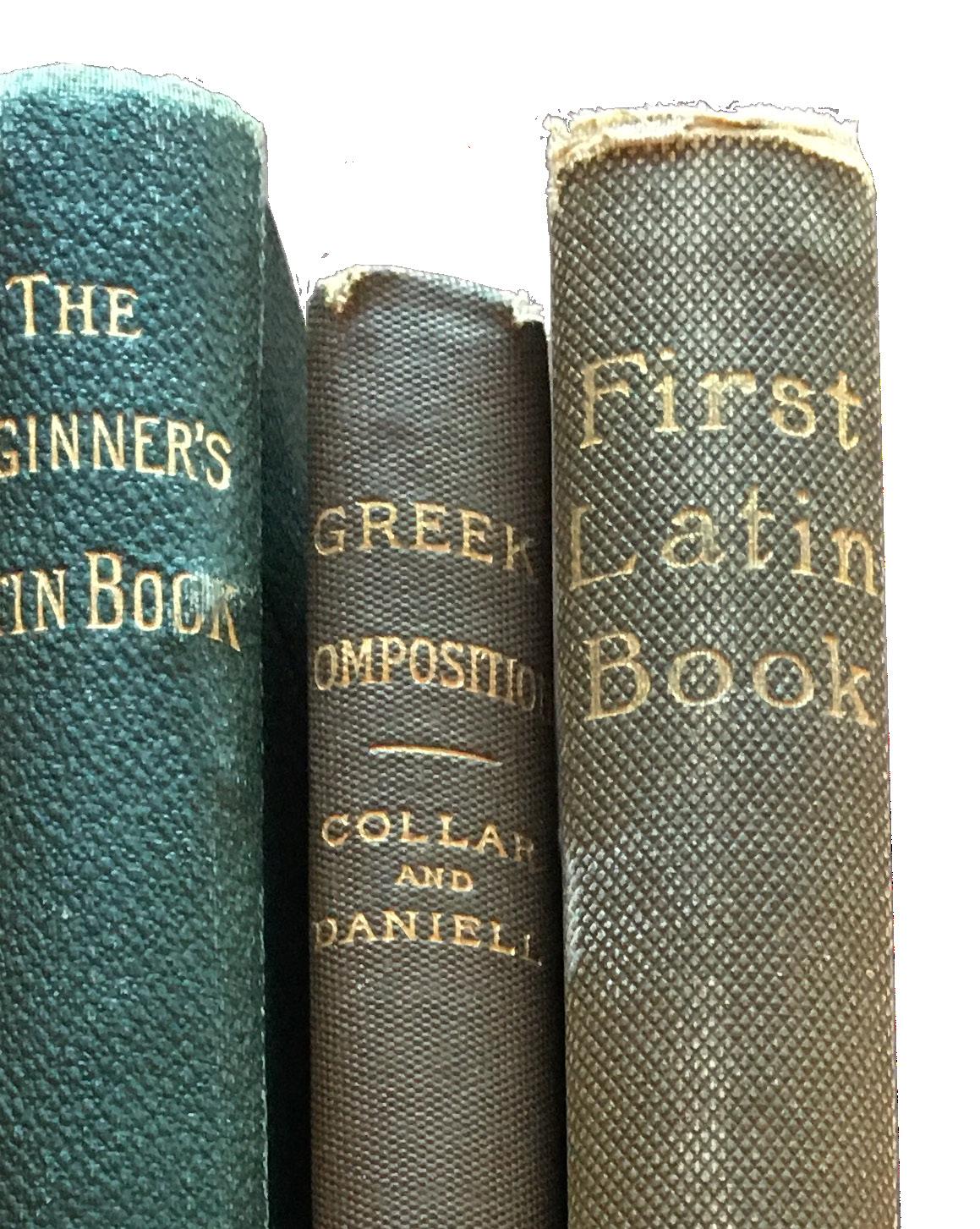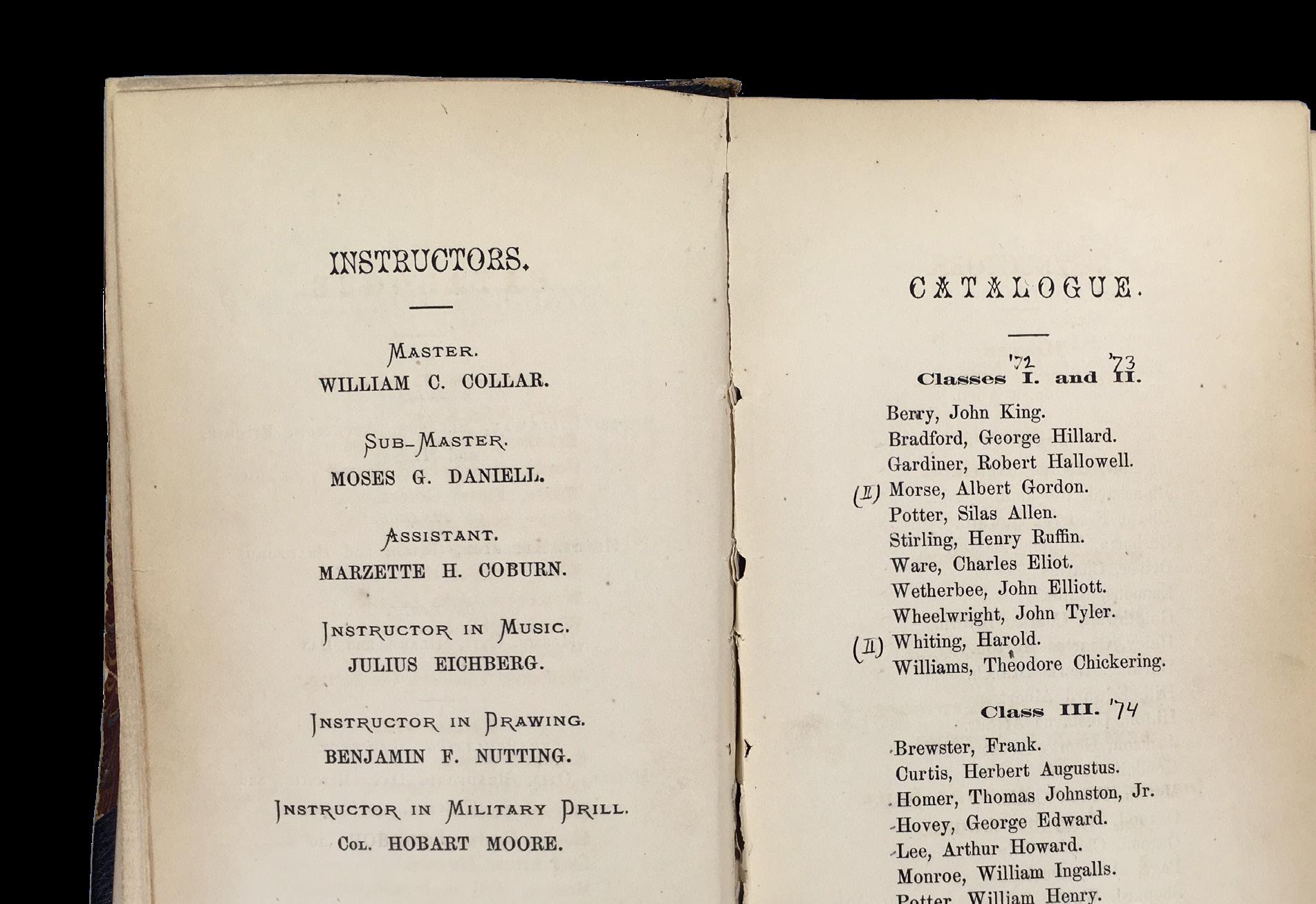
4 minute read
Ramblings from the Archives
from the archives
Curricular Innovations Over The Years
Advertisement
by CHRIS HEATON
Change is the only constant. That’s certainly true as schools adjust their curriculum. As noted in this edition of the Newsletter, Roxbury Latin has adapted its courses over the centuries, and in this Ramblings I’ll highlight some courses that were introduced in the 19th century.

While we don’t have course catalogues from the days when merry England was ablaze with civil war and the Cavaliers and Roundheads were at strife, we do have records from before our own Civil War. When the U.S. was nearing war with Great Britain over the Oregon Territory in 1844, Benedict Apthorp Gould, Jr. taught a course on astronomy. He had the scholarly and celestial chops: He was the first American to earn his PhD in that subject. Lofty pursuits were in his genes; his grandfather helped expose Benedict Arnold. Teaching was in his blood; his father was the principal at Boston Latin. Later, he headed the Dudley Observatory at Siena College in Albany, New York, and founded the Astronomical Journal.1
In September 1862, as the Union and Confederates battled at Antietam, the school hired Colonel Hobart Moore as “Instructor in Military Drill.” He went on to be appointed Brigadier General in Massachusetts.2 My current U.S. History students better remember that that battle gave Lincoln the moral victory needed to issue the Emancipation Proclamation which took effect on January 1, 1863.3 That’s the year Moses Grant Daniell was hired as music teacher and assistant to Headmaster William Coe Collar. As another Eliot wrote, “April is the cruelest month,” and that was true for Daniell as his wife died during childbirth on April 19, 1865, four days after Lincoln’s death. Music wasn’t Daniell’s only gig; he helped Coe
Moses Grant Daniell
William Coe Collar
Collar write First Year Latin, a grammar and exercise textbook which was used at RL and throughout the country.
In 1871, 150 years ago (a short time in RL years), Julius Eichberg, another instructor of music, was hired. That was four years after he allowed women to study music at the Boston Conservatory, which he had founded in 1867.4 5
Another staple of the Arts Department, drawing, was also added to the curriculum in 1871. The first teacher was Bostonbased artist Benjamin F. Nutting, whose works can be found in the Art Institute of Chicago and The Metropolitan Museum in New York. Like Coe Collar, he literally wrote the textbook: The Boys [sic] and Girls’ Self-Instructing Drawing Book, for Amusement and Recreation.6
Roxbury Latin published its first Catalogue the next year. The last boy listed under Classes I and II is Theodore Chickering Williams, the only alumnus to become headmaster. The first student listed is John King Berry, Class of 1872. He became a state senator. His son, Stanton King Berry, Class of 1907, died in Veaugues, France, on October 19, 1918 during the Great War.
His commanding officer wrote, “Stanton was a man whom we all admired and we considered it a privilege to be included in his friendship.”7 This fall, Tim Kelly taught that war as part of the Global Conflicts course. This author is privileged to be included in his friendship and is teaching the second part of that course this spring. We highlight the ultimate sacrifice of the 13 alumni who died in World War I and the 19 boys in World War II.
Berry—like two of his three brothers who were all alumni—was taught German by Marshall Wheelock Davis, who taught at RL from 1880 until 1917, the year America entered the Great War. We can wonder if Berry used his language skills on the Western Front. German was taught at RL through 1952.
Other new courses in that era include physics, which started in 1875 under George Fairfield Forbes, who designed some of the first physics labs in the country. Chemistry was first taught by Milford Power in 1890. Switch a few of those numbers around and you get his eventual successor, another MP, Mike Pojman, who has been concocting evil potions in the labs since 1980.
When today’s students in Mr. Nate Piper’s Woodworking course or Mrs. Elizabeth Carroll’s Environmental Studies course stop by the woods on a snowy evening to study trees, they’re following in the footsteps of alumni from the 1880s when botany was taught by John C. Perkins. As Director of the IDEA Lab, Mr. Piper follows the path carved by another woodworker and positive pied piper, Robert Jorgensen, who taught that and a host of courses at the school from 1956 to 1996. //


1 “A Scientific Puritan: Benjamin Apthorp Gould.” The Dudley Observatory. 11 November 2018. dudleyobservatory.org/scientificpuritan-benjamin-apthorp-gould/. 15 November 2021.
2Annual Report of the School Committee of Boston, 1894. archive.org/details/annualreport1894bost. 15 November 2021.
3 “Massachusetts in the Civil War.” Massachusetts Historical Society. masshist.org/features/massachusetts-in-the-civilwar-1861-1862/further-recruitment. 15 November 2021.
4 Howe, Sondra Wieland. “Julius Eichberg: String and Vocal Instruction in Nineteenth-Century Boston.” Journal of Research in Music Education, vol. 44, no. 2, [MENC: The National Association for Music Education, Sage Publications, Inc.], 1996, pp. 147–59, doi.org/10.2307/3345667. 15 November 2021.
5 Boston Conservatory Celebrates Women’s History Month with Nod to Founder Julius Eichberg’s Work for Gender Equality. Boston Conservatory at Berklee. bostonconservatory.berklee.edu/ news/boston-conservatory-celebrates-women%E2%80%99s-historymonth-nod-founder-julius-eichberg%E2%80%99s-work-gender. 15 November 2021.
6 “Benjamin F. Nutting.” The Metropolitan Museum. metmuseum. org/art/collection/search/354800.15 November 2021.
7 “Stanton King Berry, World War I Soldier.” Kansas Memory. kansasmemory.org/item/224965. 15 November 2021.
101 St. Theresa Avenue West Roxbury, MA 02132-3496 www.roxburylatin.org
Change Service Requested
Academic and athletic enrichment programs, for boys and girls, on Roxbury Latin’s 117acre campus. Kids can play, learn, create, and investigate in more than 20 fun and flexible programs.











